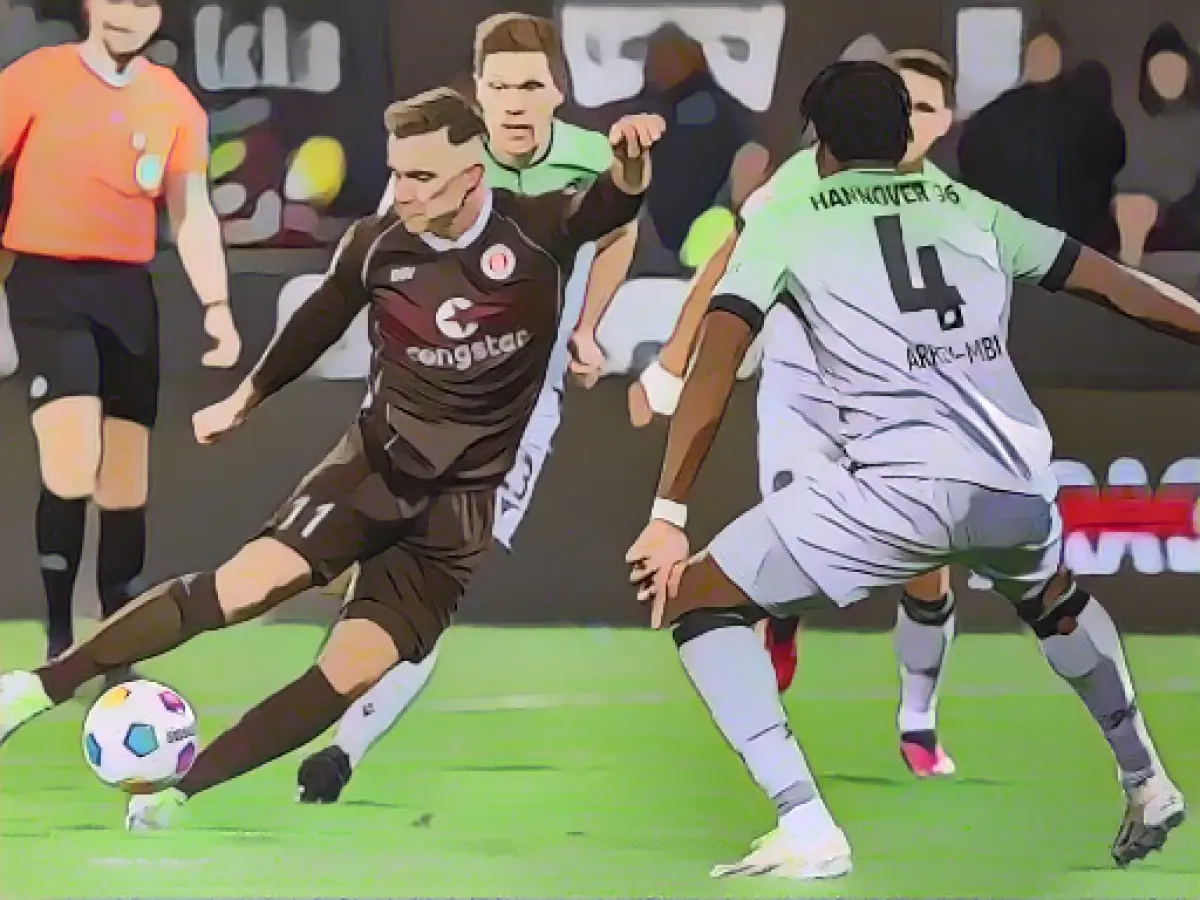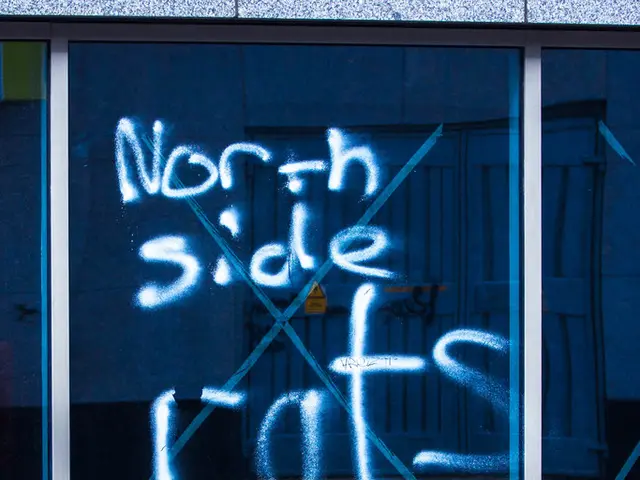FC St. Pauli's Eggestein: Navigating the Disturbance against 96's "Adverse Effect"
Johannes Eggestein, St. Pauli's striker, rated the interruptions during their match against Hannover 96 as an "adverse effect," impacting their game flow. In a chat on NDR's "Sportclub" on Sunday, he stated, "We were under a bit of pressure." The draw between the two Bundesliga 2 teams occurred on Friday.
The match at Millerntor was disrupted when a brawl erupted among Hannover 96 fans near the 75th minute. A fan was allegedly brutally attacked, triggering the intervention of police officers. However, the officers ended up being targeted by 96 fans. A post-match scuffle ensued between home fans and the police. Up to 15 fans and 17 officers sustained injuries according to Saturday's police reports, depicting the harshness of the riots. The clash interrupted the game for approximately five minutes before resuming.
Eggestein viewed the incidents as "unpleasant scenes," asserting that "Nobody wants to witness such things." As a player, he found it challenging to weigh in or offer a perspective during such complex situations: "It's tricky as a player to have a view, to grasp the overall picture, and take action in such a scenario."
Despite the draw's disruption due to the turbulent crowd episode among Hannover 96 supporters, Eggestein credited their opponents' performance as a source of pressure for his team.
Football Fan Incidents: Beyond the Headlines
While the specific FC St. Pauli vs. Hannover 96 match isn't detailed, understanding the broader context of fan incidents in German football can offer insight into the scenario.
- East German Hooliganism: A notorious chronicle of violence and clashes with the law characterized hooliganism in East Germany, as evidenced by tragic incidents such as the 1990 FC Sachsen Leipzig vs. FC Berlin match, where a supporter lost their life.
- Modern-Day Challenges: Fan culture, political and ethnic tensions, and racism have often led to football-related violence. Examples include the use of coded insults, like "HH" for "Heil Hitler," and the prominence of xenophobic banners.
Impact and Response
The repercussions of fan incidents can be far-reaching:
- Physical and Legal Consequences: Injuries to fans and police officers are not uncommon, as shown by incidents like the 2008-09 NOFV-Oberliga Nord match between BFC Dynamo and Tennis Borussia Berlin, with 58 people injured, including 7 officers.
- Stadium Bans and Legal Action: Utilization of force may result in fans being banned from matches, along with legal proceedings, as demonstrated in the 2008 instance of Torsten Ziegner, who was penalized for racially abusing a player.
- Media and Public Impact: Scandals seize media attention and often lead to public outcry, with campaigns like the "No Chance for Hate" campaign aiming to combat racism and xenophobia.
- Club and Federation Responses: Clubs and sports authorities take measures to address these issues, with examples like Lazio's condemnation of violence and collaboration with law enforcement.
In conclusion, while distinct details on the FC St. Pauli vs. Hannover 96 incident remain scarce, understanding the broader context of fan incidents in German football reveals a complex panorama of historical, cultural, and political elements sparking these occurrences.








